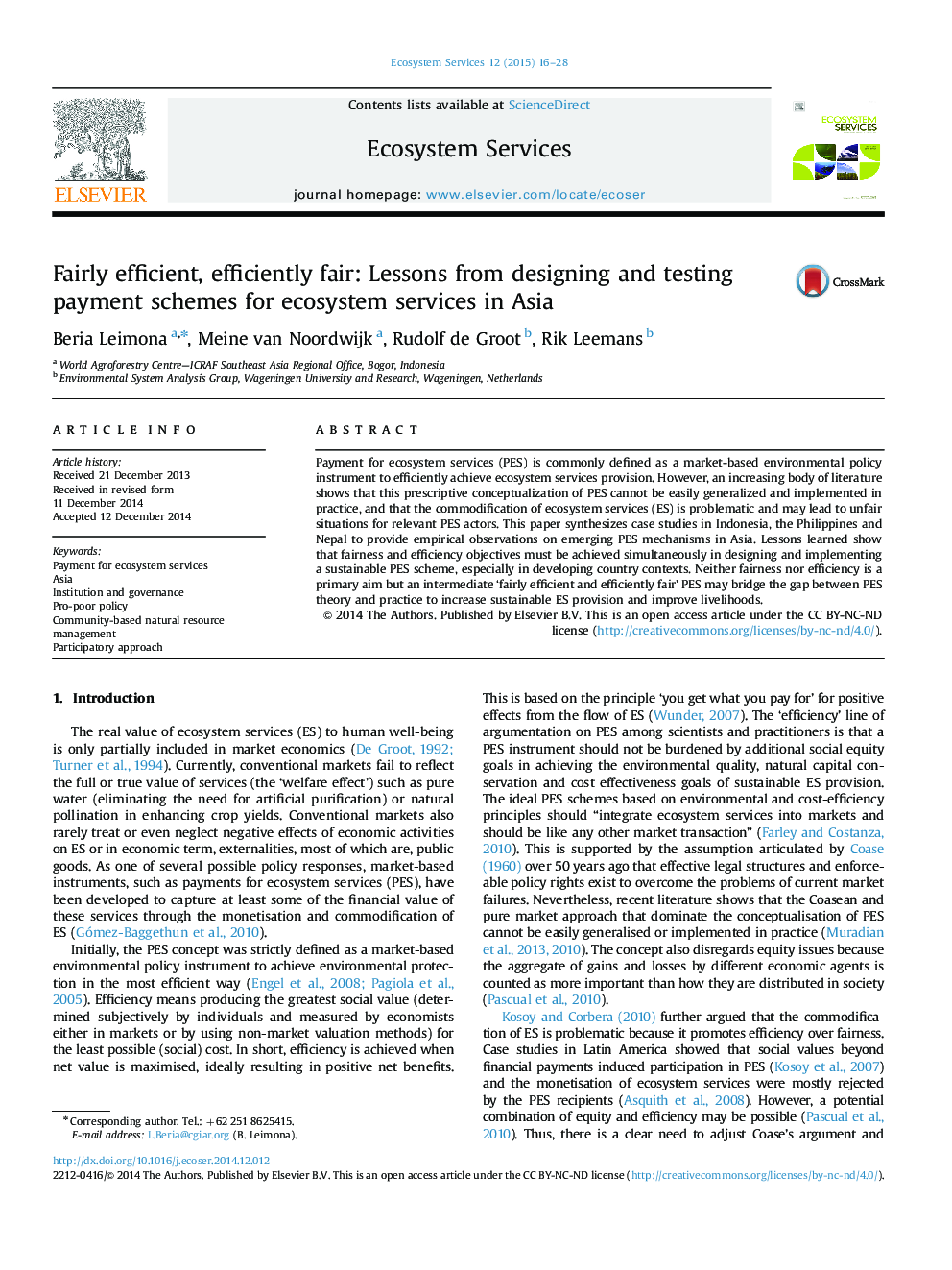| Article ID | Journal | Published Year | Pages | File Type |
|---|---|---|---|---|
| 6556819 | Ecosystem Services | 2015 | 13 Pages |
Abstract
Payment for ecosystem services (PES) is commonly defined as a market-based environmental policy instrument to efficiently achieve ecosystem services provision. However, an increasing body of literature shows that this prescriptive conceptualization of PES cannot be easily generalized and implemented in practice, and that the commodification of ecosystem services (ES) is problematic and may lead to unfair situations for relevant PES actors. This paper synthesizes case studies in Indonesia, the Philippines and Nepal to provide empirical observations on emerging PES mechanisms in Asia. Lessons learned show that fairness and efficiency objectives must be achieved simultaneously in designing and implementing a sustainable PES scheme, especially in developing country contexts. Neither fairness nor efficiency is a primary aim but an intermediate 'fairly efficient and efficiently fair' PES may bridge the gap between PES theory and practice to increase sustainable ES provision and improve livelihoods.
Keywords
Related Topics
Life Sciences
Agricultural and Biological Sciences
Agricultural and Biological Sciences (General)
Authors
Beria Leimona, Meine van Noordwijk, Rudolf de Groot, Rik Leemans,
